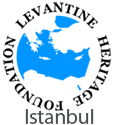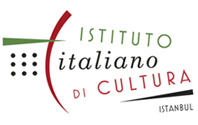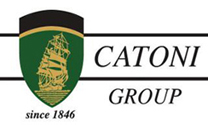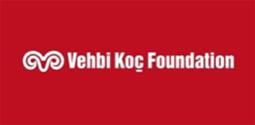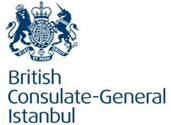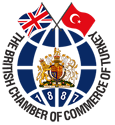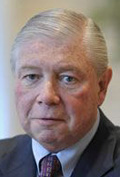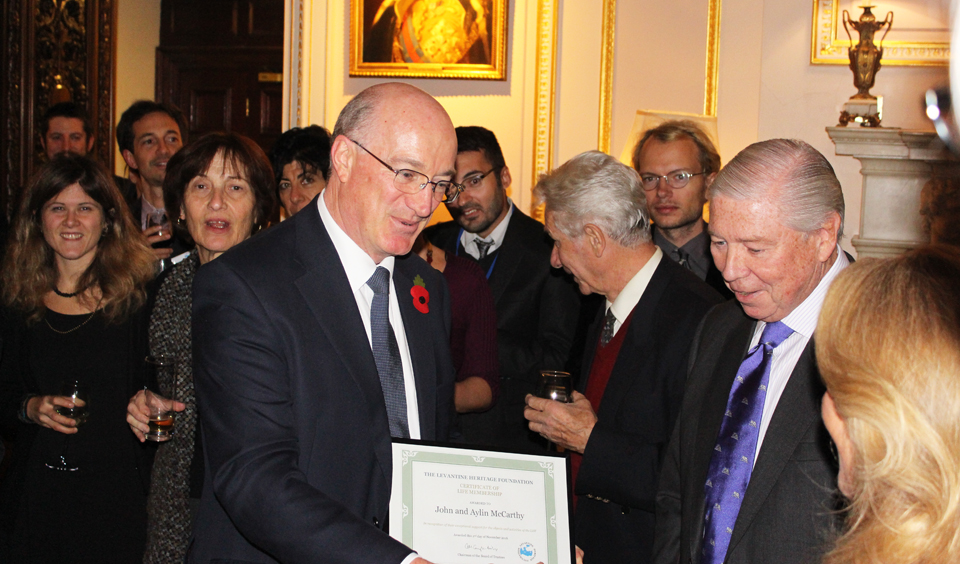I am currently researching primary and secondary source materials for a personal project which combines various aspects of my interests- private, professional, coincidental. Building on connections at Boston, ING Barings/ ING Bank (London and Turkey) and Macao/Canton/Hong Kong, I seek to study the commercial interconnections which supported the China Trade activities of ‘The Boston Concern’ between Boston, England, Smyrna and Constantinople (given the time frame under consideration, 1795 - 1861, I prefer to use the names of the period).
Though I have lived in Istanbul for 34 years, I am not a Levantine. I was introduced to the LHF by my friend, Jonathan Beard of Istanbul. True sons of the Levant, Jonathan’s family firm, Catoni, trace their Levantine roots back more than 200 years, principally in shipping and related maritime activities.
Born seventy-one years ago in Boston, I received university degrees from Tufts, Boston (BA in German and Economics); Eberhard-Karls Universitaet, Tuebingen (Germanistik); and Tufts (MA Modern Languages). Following enlisted service in the US Army, I joined State Street Bank, Boston, and began a career in international banking. Post graduate studies in International Finance followed at Babson College, Wellesley.
My wife, Aylin, is Turkish. We have one son, Sinan, who has also chosen a career in international finance. We have made our home in Istanbul since 1984.
After five years with State Street Bank in Munich (1970 - 1975), I joined American Express Bank (1976 - 1990). In 1991 I joined my current bank, the Netherlands based ING Bank, establishing their operations in Turkey. I continue to serve as Chairman of ING Bank AS, Turkey. My goal is to retire from banking in 2020, completing a fifty year career in trade finance, corporate, and investment banking.
In 1995 ING Bank rescued the 233 year old Barings Brothers Bank. That August house had been brought low by illicit derivatives trading activities in Singapore by a twenty-three year old rogue trader, Nick Leeson. ING Bank bought Barings for one pound sterling. I became a Managing Director of the new ING Barings Bank and lead its activities in Turkey from 1995 until 2006.
The ‘Boston Concern’ as it became known to its contemporaries, bankers, clients, investors and competitors (the origin of the name is attributed to their arch-yet occasionally cozy-competitors, Jardines) was a dynamic grouping consisting of four prominent Protestant Boston families: Russell, Forbes, Perkins and Sturgis. Though competitors, they were united by Yankee pragmatism; they were deeply interconnected in business ventures and, often, by marriage.
(When I began my banking career in Boston as a young trainee at the then 178 year old State Street Bank, my assigned mentor was Mr. Russell Forbes Perkins. I remember him fondly. On my first day I reported to his desk as an eager twenty-four year old. I had dressed to impress - in a conservative way - in blue blazer, white shirt, regimental tie, buffed black brogues and pressed grey flannel trousers. Following mutual introductions which I felt had gone well, Mr. Perkins leaned forward and advised: “At this emporium, the pyjama tops should match the pyjama bottoms”. That evening after work, I bought two conservative suits on a salary advance, which he had arranged.)
The main bankers to the Boston Concern were Barings Brothers (founded 1762). Barings believed in the principle of agency in trade:
“Trade requires trust. Trust leads to tolerance in a broader sense. But control is also required of prudent men in their commercial affairs. Therefore [there is] the wisdom and need for trading outposts and agents of skill and high repute.”
From their headquarters in London, Barings maintained agents in Boston, Smyrna and Alexandria. In China, as all western firms, they were obliged to deal with Howqua.
Using the resources of Russell & Co. (Baker Library, Harvard, Cambridge, Massachusetts), the Barings Archives (ING Bank, Moorgate, London), the Peabody and Essex Museum (Salem, Massachusetts), I seek to document the progress of one of Russell & Co.’s trading ships as it conducted its businesses between Boston, England, Smyrna and the Chinese coast. I will focus on the personalities, cargoes and financial arrangements involved. I will consider the cargoes traded: figs, dried fruits such as apricots and raisins, carpets, silver, silk, tea. And, of course, opium.
The principal agent of Barings in the USA, located not in New York but the more Anglo-oriented Boston, was the American, Joshua Bates. He had been brought into the Barings partnership (the first non-family partner) to assume the role of Managing Partner in 1828. Bates shepherded Barings well by reorienting the business back to its roots in trade finance.
At Smyrna, both Russell & Co. and Barings were represented ably through the American Ward brothers, Thomas Wren Ward and Thomas Ward. Like Joshua Bates they were known Bostonians. The correspondence between them concerning Turkey to Barings at London, Boston and Canton is a source of information to be mined.
The Levantine aspect of my research concerns how Barings / the Boston Concern / Russell & Co.’s Turkish businesses were effected and by whom. I need assistance from the LHF as to who, when and how Levantines were involved with the Americans on the Smyrna end.
The business centered around the usage of ‘bills of exchange’ and to lesser degree, barter. “In its evolved form, the bill trade embraced large numbers of people on three continents in several different kinds of commerce. The most important merchant bankers concerned were located in London,... The larger banks had branch houses in a number of different cities in Europe and America. Alternatively they maintained trusted agents.... these agents, the best known of whom is probably Thomas Wren Ward, representative of Barings Brothers & Co., were issuing the paper that financed the bulk of the American China trade. These bills, sold in Canton to opium traders who had brought their drug from... Turkey, ultimately returned to England via India and were cashed against the drawers’ accounts. These accounts were kept in funds through American exports to Britain. Thus Americans drank Chinese tea paid for by Southern cotton through the medium of London bills of exchange and Asian opium. The growth of this remarkable traffic in cargoes and documents is a study in the dynamics of unrestrained private enterprise among an alien people half a world away.” (Downs, J.M.)
Lastly, I have an overlapping interest in China Treaty Port art, mainly focused on the Chinese artists Sunqua, Lamqua, Fouqua each of whom was influenced by the charming, roguish, Anglo-Irish artist George Chinnery. These masters, in differing fashion, contributed to the historical record. The collections at the Peabody & Essex Museum, at the archives of HSBC in Kowloon, and at the ING Barings archives in London are proving to be of good value in this regard.
I have set a goal to complete my project soon after my formal retirement by 2020. Any guidance on the activities between Smyrniot Levantines and the Boston concern, or Americans in general, during 1795-1861 will be appreciated.
John T. McCarthy, Istanbul





